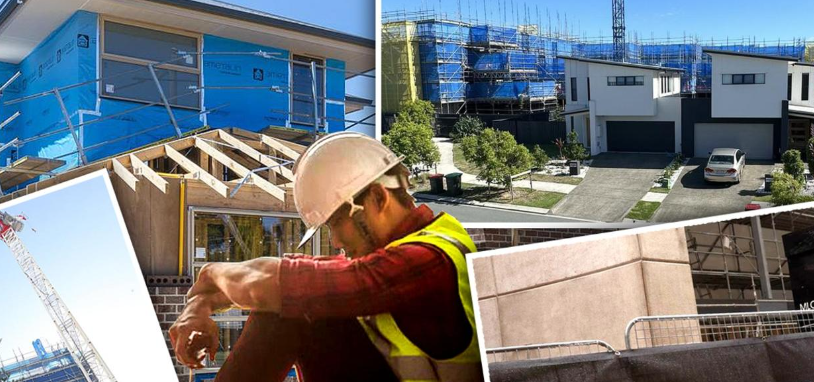Author : Matt Lewison, CEO OpenCorp
Monday 24th April 2023
While it’s sad to see reports in today’s papers regarding another large Victorian building company being put into Administration, there is a silver lining for property investors.
Over the last 12 months, countless builders have collapsed, the most high-profile being Porter Davis Homes. MaherCorp, which owns UrbanEdge Homes and Eight Homes, started more than 1,000 homes in 2021/22 making it the 22nd largest builder in Australia and one of Victoria’s top 10 builders, according to HIA Statistics.
The spate of collapses presents a huge risk to people that are considering building a new home. That extends to property developers in the apartment game. So, how does this benefit property investors?
1) With uncertainty comes inaction: housing starts are trending lower as many individuals are scared to take the risk of building a new house, and apartment developers are struggling to find large scale builders that they trust to build their projects. This means that fewer homes and apartments will be built over the next 2 years, exacerbating the housing undersupply at a time that migration is at all-time highs.
Increased demand and lower supply = upwards pressure on house prices and rents.
2) Builders in a strong financial position (i.e. those that have lots of cash and assets) are winning the majority of the work as the weaker builders leave the market. This means that the housing market will end up being stronger in the future. The challenge is knowing which builders to trust, as a well-known brand, like Porter Davis, does not always translate to a strong financial position.
Property investment advisors are able to undertake due diligence on a builder, including financial reporting metrics, to ensure that you are selecting the right builder.
3) The builders that remain in the market will also benefit from improved trade and supplier availability as a result of fewer housing and apartment starts. It is unlikely that these lower costs will be passed on to future clients, as the builders will seek to retain the savings to further improve their profit margins. This is not a bad thing: it means that builders become stronger to withstand any future trade and supply shortages, and will rebuild the trust in the sector in the years to come. It also puts a floor under the housing market as the replacement cost for an established house is now considerably higher than it was 2 years ago.
Property investors that buy or build new, with a well-capitalised builder, will benefit from working with an unquestionably strong builder while also getting higher depreciation benefits (attributable to the higher replacement cost of the building), thereby enabling them to use a greater share of their tax to help build their property portfolio.
Of course, the two biggest risks facing investors looking to build a new house are:
1) Signing up to a “fixed price contract” that still enables the builder to reprice the contract price (or crash the contract) after they have paid a deposit.
We’ve heard of some builders telling property investor clients that they wouldn’t start construction unless the client agreed to pay $100k more to build the home, which they signed up a year ago; and
2) The builder taking longer to build the home than originally forecast, with the client being left with the bill for delays.
These risks are not new to the industry, but they are critically relevant today. OpenCorp undertakes considerable due diligence to source builders that are financially secure and have a history of building on-time, but we know that investors need more than this. That’s why we also provide investors with further contractual assurances, including a locked in fixed-price contract (with no surprise re-pricing), and a guaranteed completion time that ensures that the investor is paid rent (as if the home was complete) if the house isn’t finished by the due date.
These assurances have saved many of our clients between $50k to $150k over the last two years, and have helped them to be in a position to grow their portfolio sooner.
Investors that act now to build a new home, with the benefit of OpenCorp’s builder due diligence and fixed price/fixed time assurances, are able to take advantage of the growing housing undersupply while locking in more than $300,000 of future tax deductions.
So, while the regular news about builder insolvencies is terrible to hear for the staff, shareholders and clients of the builders affected, the silver lining is that it has created a small window of time for property investors to get in ahead of the property price boom. And working with a reputable property investment advisor that provides additional risk protection for its clients, like OpenCorp, helps to make progress towards your financial goals with peace-of-mind and confidence about the future.
If you would like to find our more how we can help you invest safely and confidently please book a Discovery Call.









